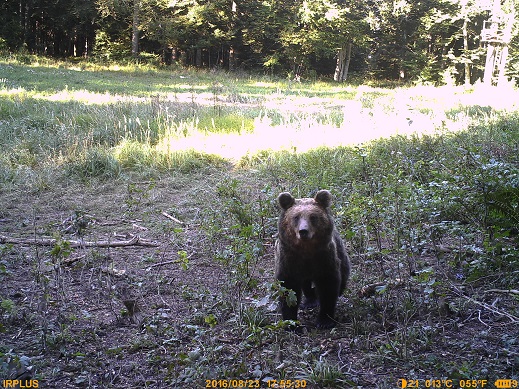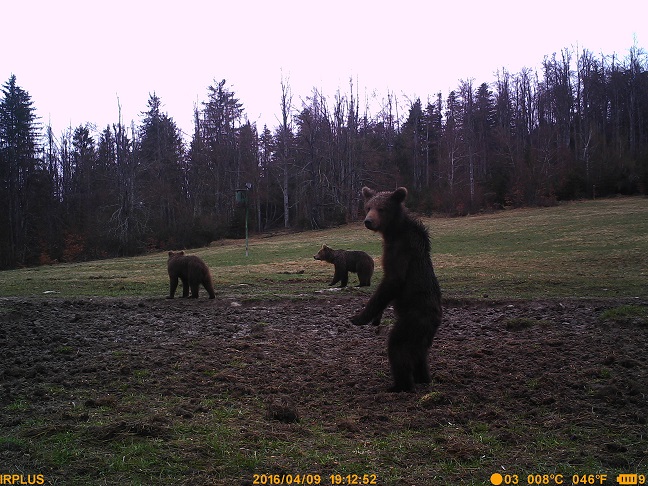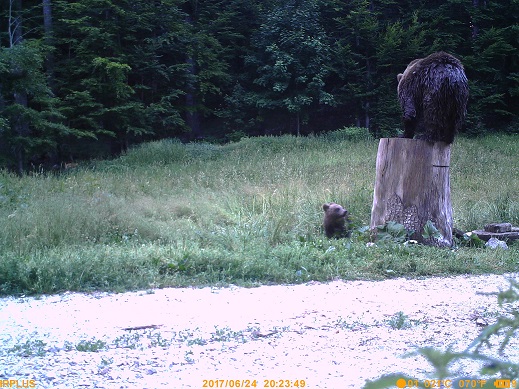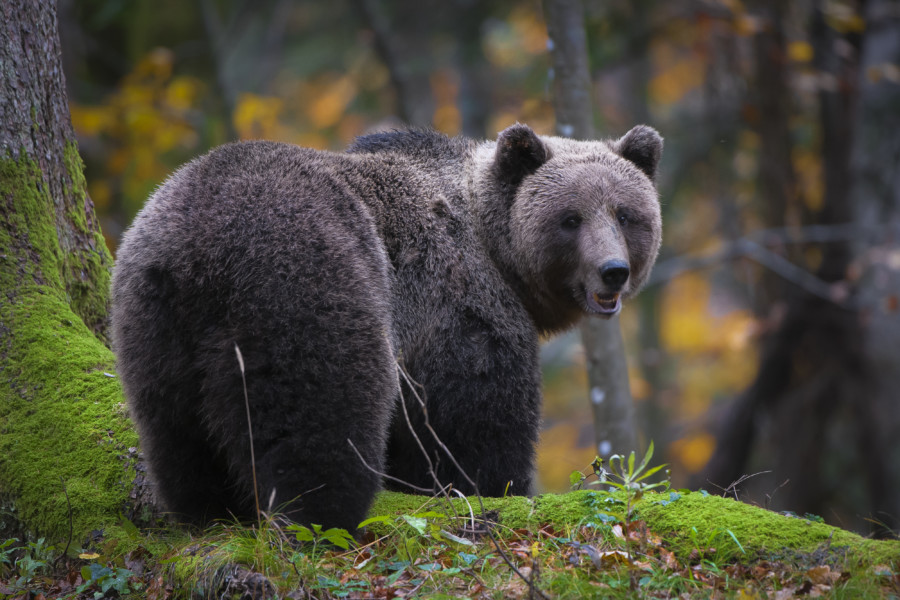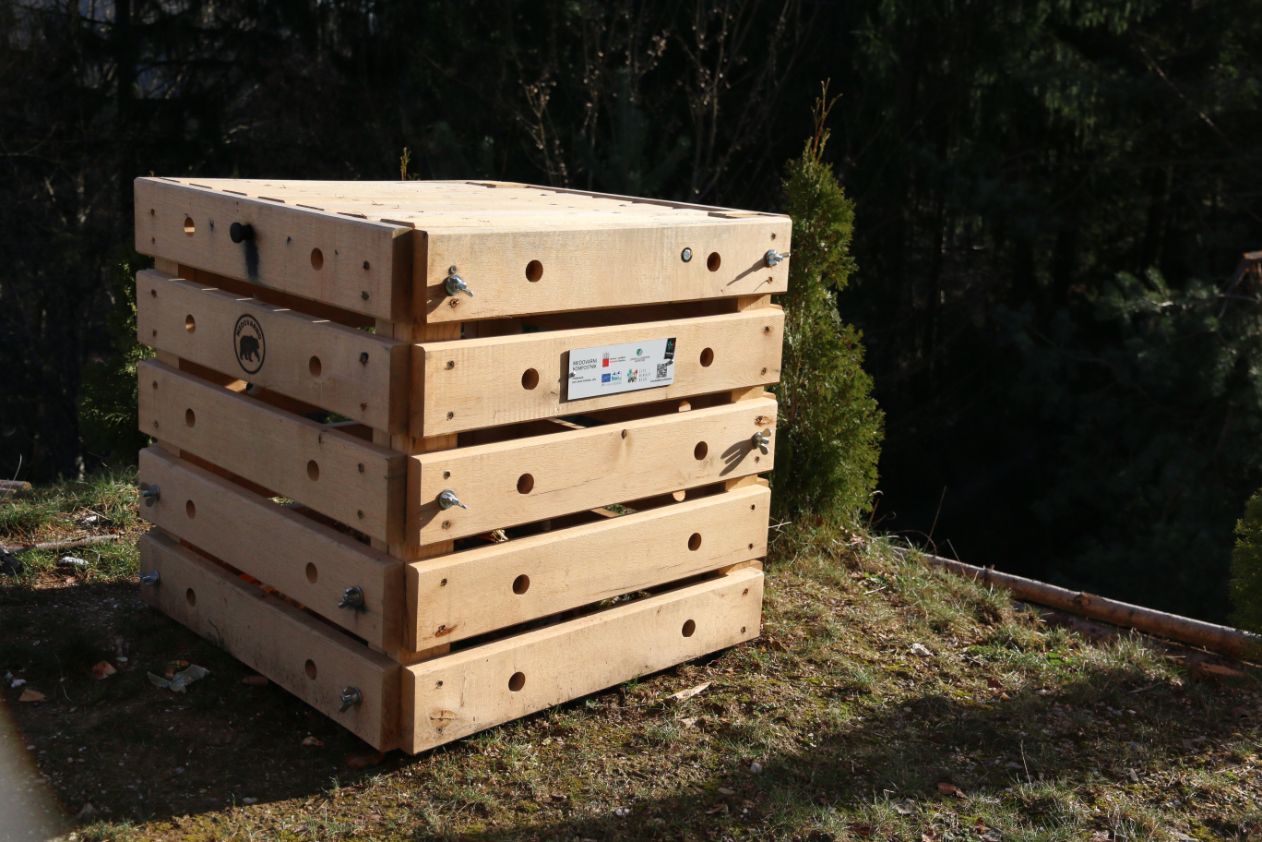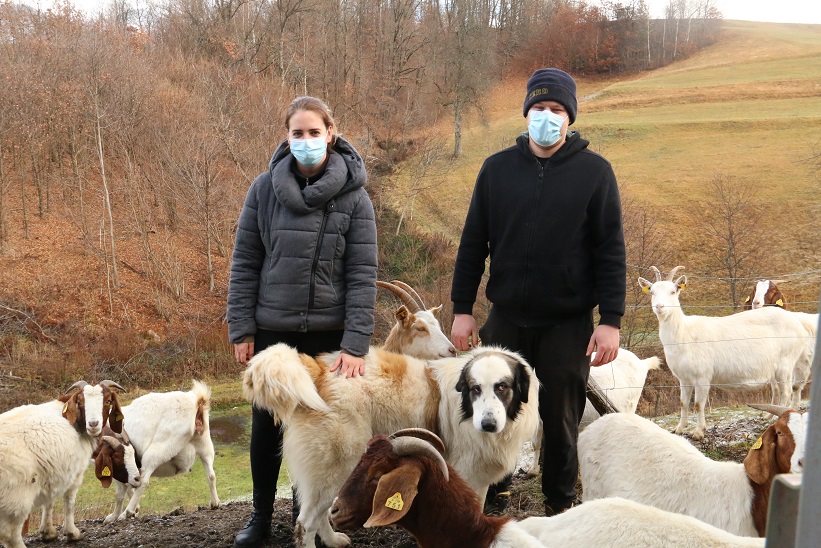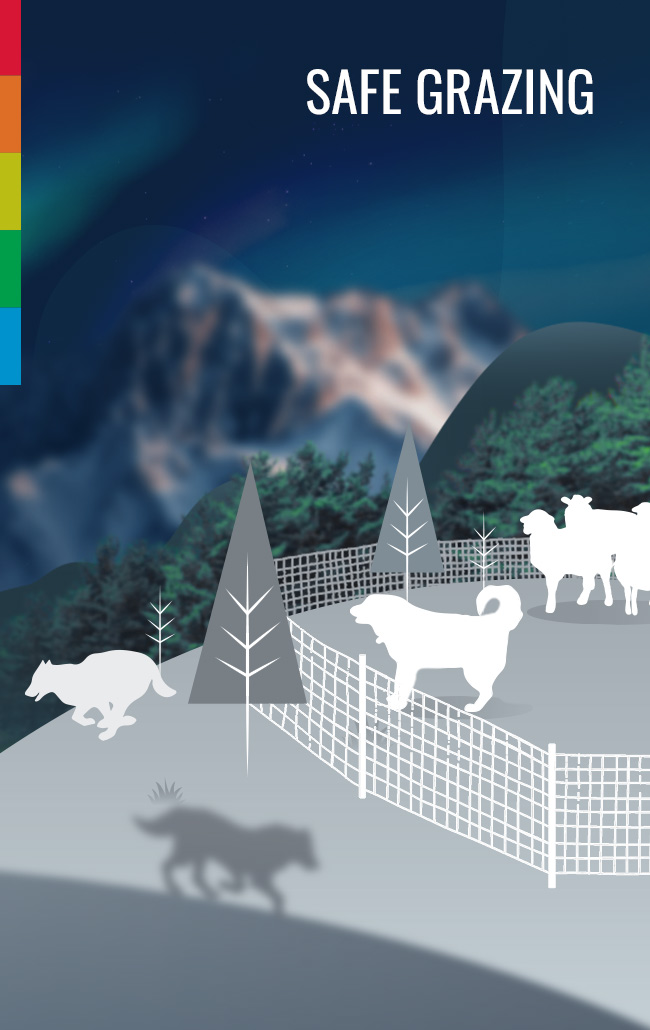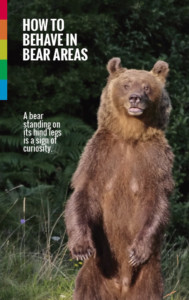Artificial feeding of bears has a long tradition in Slovenia as well as in several other countries. Corn, fruit and carrion from domestic animals, mostly cows and horses, were the main feed provided on feeding sites. Following the ban on feeding livestock carrion in 2004 strong concerns arose among the general public. There was a widespread opinion that carrion feeding is effective in reducing bear conflicts, especially attacks on sheep, even though no scientific study has supported the concern.
Within the LIFE DINALP BEAR project, we were able to carry out an experimental study to test for the first time, whether bears prefer carrion over plant-based food. We supplied different types of food to 19 feeding sites for two years. In the first year half of the feeding sites were supplied with carrion (mainly red and roe deer road kill) and plant-based food (mostly maize) and half with plant-based only. In the second year we changed the feeding regime so carrion was supplied at the sites where maize was used in the first year, and vice versa. Presence of animals was monitored using camera-traps. Carrion feeding sites were used more often primarily in 2017 when natural food availability was extremely low. On the other hand, the difference in the use of feeding sites with or without carrion in 2016 was negligible.
Carrion is an important part of natural food webs. On the basis of this study we suggest that carrion from wild animals (especially road kill) is supplied to feeding sites whenever accessible and technically feasible to transport. Finally, we recommend that artificial feeding is based on rational justification and is used only when desirable effects, such as diverting bears away from settlements, simplifying monitoring and hunting, exceed the unwanted.
We kindly invite you to read the report.



